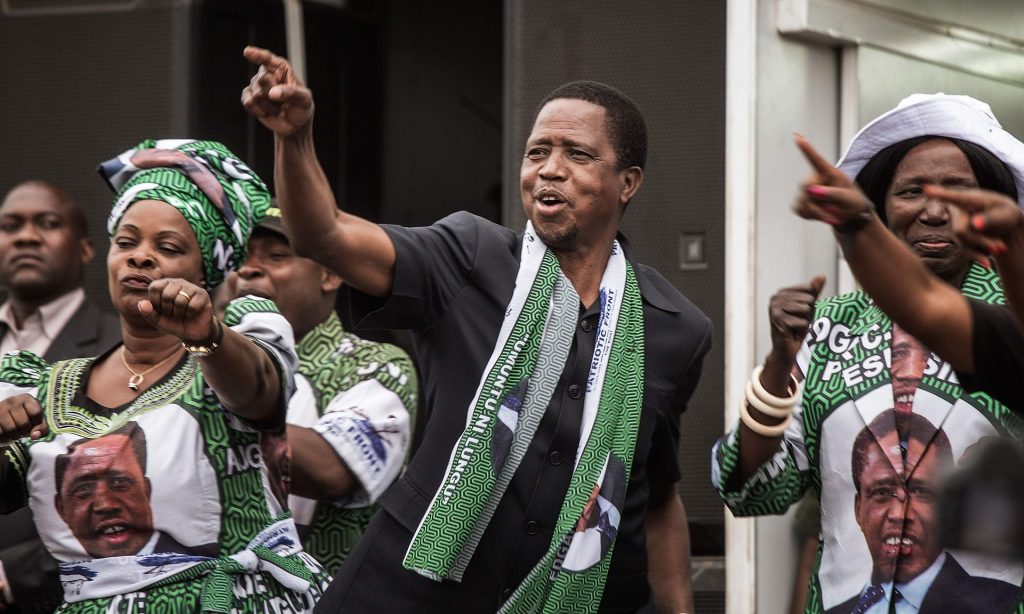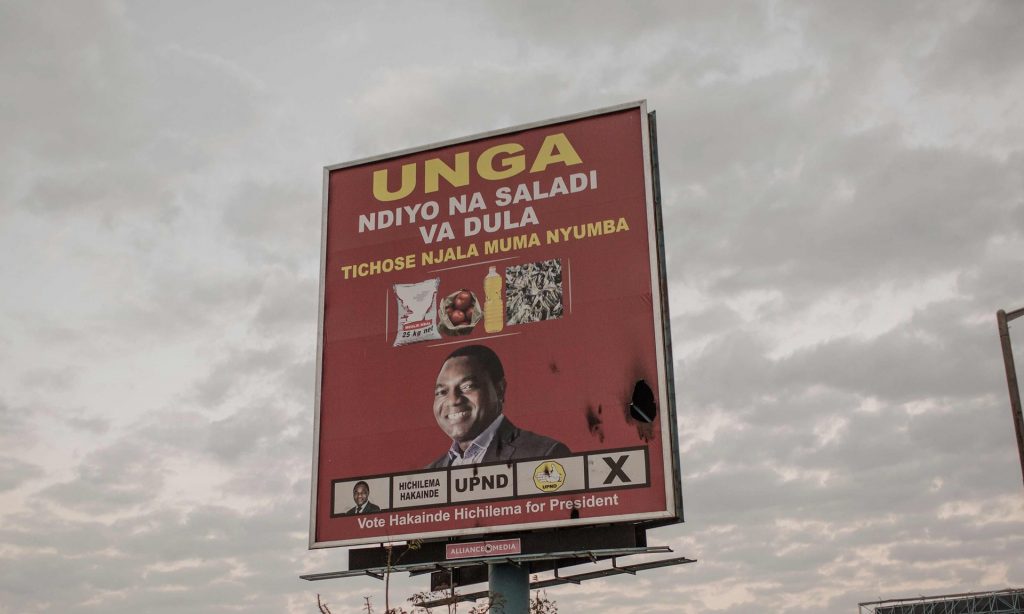
Photograph: Gianluigi Guercia/AFP/Getty Images
Zambians go to the polls on Thursday to choose their next president after an election campaign marred by violence and press blackouts, and against a backdrop of a tanking economy.
The candidates are the current president, Edgar Lungu, of the Patriotic Front (PF), who won an emergency election in 2015 by just 27,000 votes; and the businessman Hakainde Hichilema of the United Party for National Development (UPND), who is challenging for the presidency for the fifth time.
The vote is, in effect, a rerun of the 2015 election.
In a country that prides itself on peaceful politics, both sides have been implicated in violence during the campaign. In July police opened fire on opposition supporters in the capital, Lusaka, prompting the electoral commission to suspend campaigning for 10 days.

Photograph: Gianluigi Guercia/AFP/Getty Images
The fact that the race is tight has contributed to tensions, which some say could escalate on Thursday if there are any complaints about the fairness of the voting process.
The personal stakes are high for the candidates too. “The outcome can potentially end their political careers. Lungu has only served one term and will now be judged on his legacy,” said Dimpho Motsamai, a southern Africa analyst at the Institute for Security Studies.
“Hichelema is running for the fifth time, also at a time when the UPND is at its strongest, and backed by PF defectors. A loss has dire consequences for their political longevity and the strength of the party,” she said.
Lungu enters the race with the usual advantages of an incumbent. State media have trumpeted his campaign messages, while outlets deemed too critical have been harassed or, in the case of the country’s leading newspaper, The Post, shut down.
Lungu’s party has also been accused of appropriating state funds for political purposes and using state security services to intimidate opposition figures.
Last month the home of Hichelema’s running mate, Geoffrey Bwalya Mwamba, was teargassed during a police raid. Mwamba’s grandson suffered injuries that required hospital treatment.
“The PF’s power of incumbency has been felt during campaigning, where they have created an uneven playing field for the opposition,” said Motsamai.
Hichelema, however, has a couple of trump cards of his own. A series of high-profile PF defectors have rallied to his cause, including Mwamba, Guy Scott and Mulenga Sata, the son of the late president Michael Sata, whose death in October 2014 prompted the January 2015 election to find a successor to serve the remainder of his term.
His main weapon, however, has been Zambia’s poor economic performance during Lungu’s short time in office.
Growth has slowed from 7% to 3%, 10,000 jobs have been lost in the copper belt, Zambia’s industrial heartland, and the kwacha was the worst-performing currency in the world in 2015, dropping 42% against the dollar.
Analysts say the currency began to pick up again early in 2016.
Whether Lungu is responsible for the poor state of the economy – he inherited many of the country’s problems and has only been in power for 18 months – has almost become a moot point, because Hichelema has been very effective at making the blame stick.
In an opinion piece published on African Arguments this week, he said Zambians “deserved better from a political elite that has allowed runaway corruption to drive our economy into the ground.
“Zambians also deserve better from a governing class that is focused predominantly on improving their own standard of living, including awarding themselves hefty pay increases at a time when job losses are high and the price of food sky-rocketing.”
There is noticeably less enthusiasm for the democratic process in Zambia than there was even five years ago, with people tired of petty squabbling and politicians’ failure to deliver on their promises.
This was apparent in the low turnout for the 2015 election, in which only 32% of registered voters participated, and there is little to suggest that this time will be any different.
Yes, Thursday is about the country’s next president, but the real story may be how few Zambians think it actually matters.
